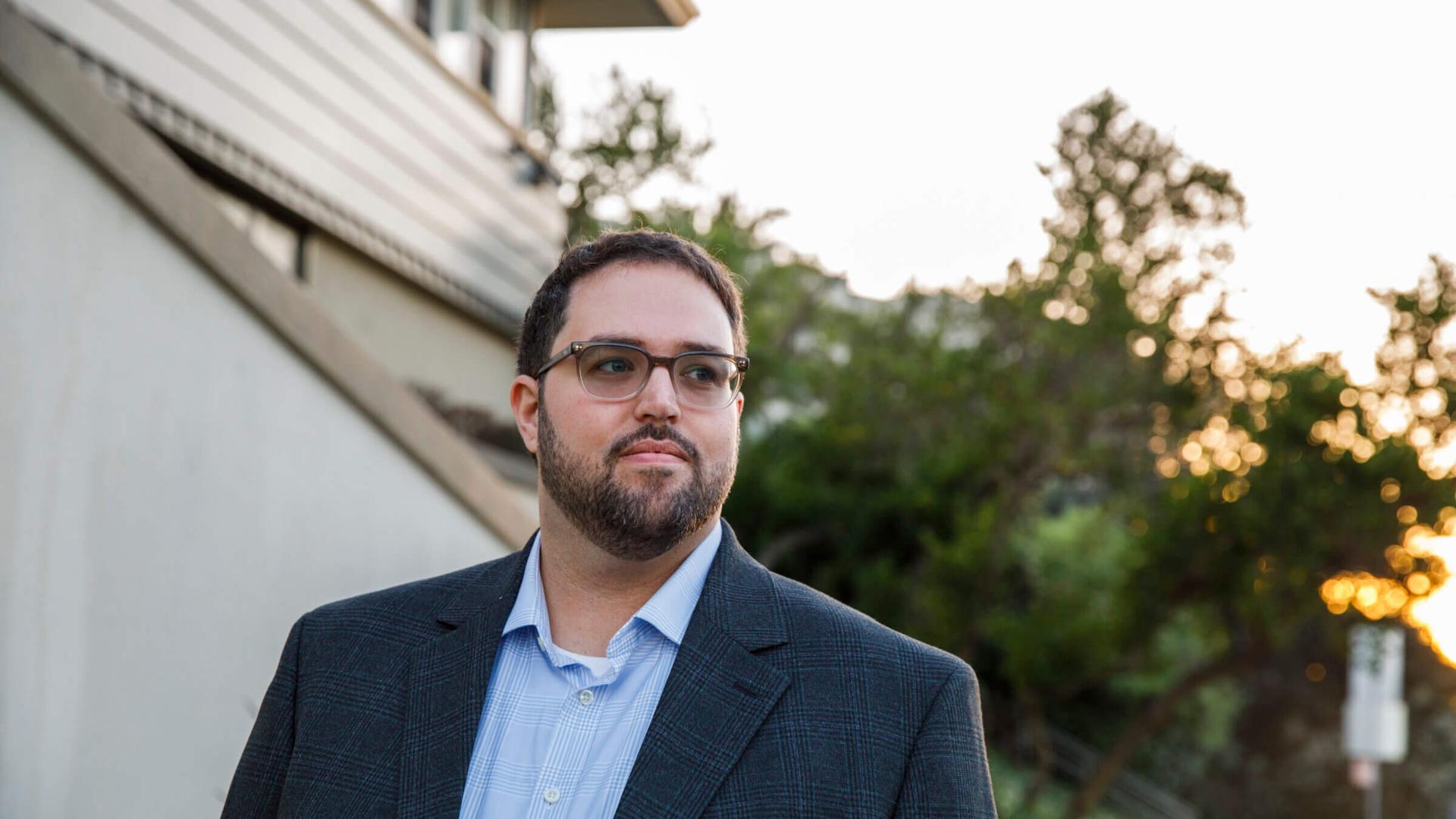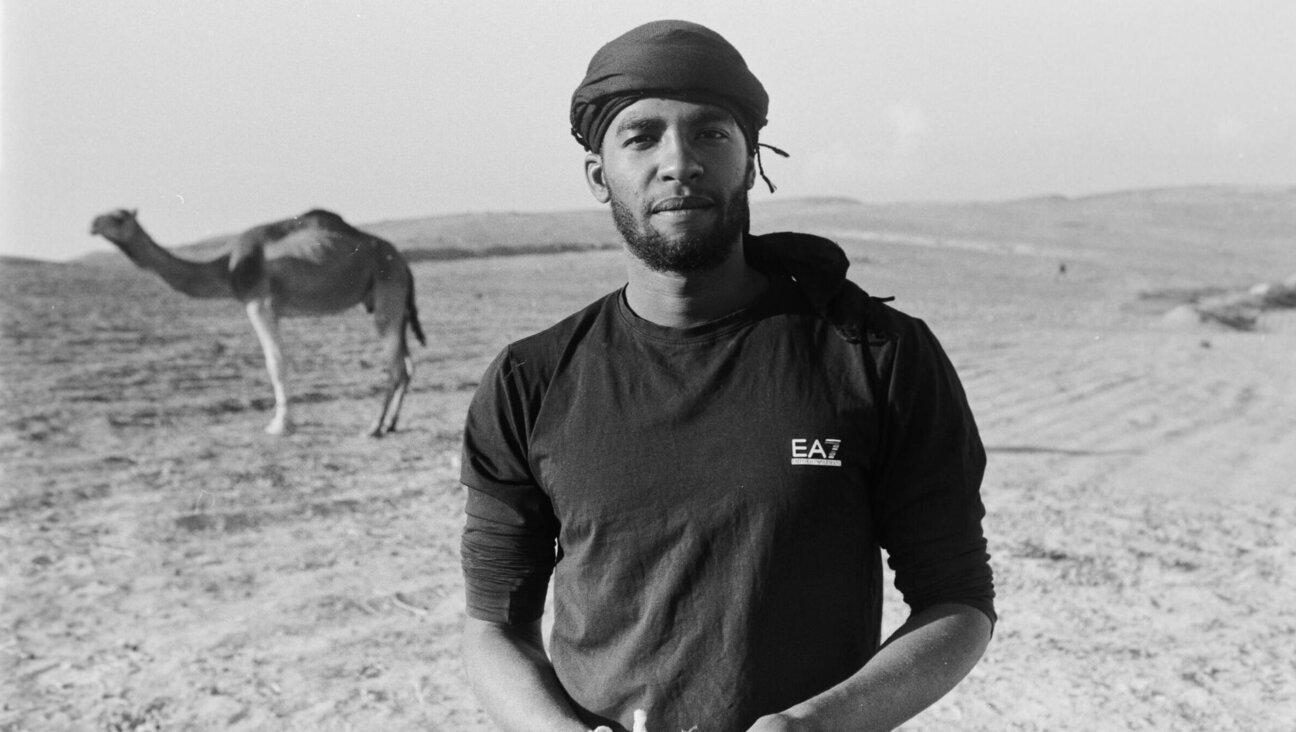This article is part of our morning briefing. Click here to get it delivered to your inbox each weekday. Orthodox Judaism has its first openly gay congregational rabbi. This is his story.
Shua Brick, 29, grew up feeling that he was destined to become a rabbi, the Forward’s Louis Keene writes in a new profile.“At his bar mitzvah, the head of his yeshiva told his parents: Invite me to the ordination ceremony.” But Brick, who is Orthodox, is also gay, an identity that remains deeply complicated within much of the Orthodox world. Now, Brick, who is thought to be the first openly gay rabbi to join the clergy at an Orthodox synagogue, is making his story public for the first time. “Hi, I’m a gay rabbinical student:” Brick began noticing his attraction to boys in middle school, but he didn’t begin to take it seriously until he enrolled in a Jerusalem yeshiva and fell in love with his best friend. When a therapist told him “that our goal working together will be for you to find an integration between your rabbinic self and your queer self,” Brick said, “I laughed in his face. Like, what a crazy paradox, that obviously is not possible.” “We should be open and inviting:” As Brick came close to ordination at Yeshiva University, he was offered a job at an Orthodox Oakland synagogue where he had interned. He said yes — but only if he could be open about his sexuality. “Modern Orthodox rabbis have been saying for at least 15 years now that we should be open and inviting to members of the LGBTQ community,” Rabbi Gershon Albert, who hired Brick, said. “And if we really mean that, then what are we willing to do?” “I was embraced:” Queer Jews can struggle to find a home in the Orthodox world; a 2022 white paper proclaimed “Sexual relations between people of the same sex is forbidden.” But Brick sees a path for progress. “Talking about queer experiences is not as two-dimensional as talking about the permissibility or non-permissibility of very specific sex acts,” he said. “There is a lot more to a person — a lot more to these questions — that is worth exploring.” Read the story ➤ |
Forward readers have lots of advice for Jews who feel lost and lonely. (Beth Harpaz/Canva) |
Readers respond to the lost and lonely Jews: ‘We feel your pain.’ The Bintel Brief, the Forward’s legendary advice column, gets one question more than any other: I feel disconnected from Jewish community — can you help? After Bintel took a swing at outlining the many available routes for isolated Jews to find a mishpacha, readers wrote in with more ideas, and sympathy. One common theme: It’s hard for lots of people to get their “Jewish communal needs met in one place.” Read the story ➤
Feinstein, a ‘proud member’ of her synagogue, to be buried at Jewish cemetery. Funeral services for the late Sen. Dianne Feinstein were livestreamed Thursday afternoon, and featured a San Francisco rabbi, Jonathan Singer, who told the Forward that he’d remember Feinstein as “a woman of valor who showed us how to comfort San Francisco when it was in need, and how to be courageous and stand up for justice.” Read the story ➤ |
Hadassah is elevating Zionist voices, now and always. Inspire Zionism: Tech, Trailblazers and Tattoos, hosted by the Unorthodox podcast’s Stephanie Butnick, will feature Zionist innovators having bold conversations about identity, history and culture. Join us virtually on October 25 and 26. |
WHAT ELSE YOU NEED TO KNOW TODAY |
Narges Mohammadi, winner of the 2023 Nobel Peace Prize. (Reihane Taravati/Middle East Images via AFP) |
? Narges Mohammadi, a jailed Iranian activist, won the Nobel Peace Prize for her work to promote women’s rights and combat human rights abuses in her home country. (Guardian) ? A Jewish man is suing Elon Musk for libel after Musk falsely accused him of participating in a white nationalist group. According to the suit, Ben Brody, 22, “was understandably horrified at being accused by Musk of donning neo-Nazi regalia.” (JTA) ?️ Museums in Ohio and Pennsylvania will return artworks looted by the Nazis after the Manhattan District Attorney’s office issued warrants for the Egon Schiele drawings last month. Both works will go to the heirs of Fritz Grünbaum, a Jewish art collector who died in Dachau. (ArtNews) ? A suspect has been arrested in a wave of fake synagogue bomb threats across the country — but threats are continuing. The Anti-Defamation League documented three new threats in North Carolina this week. (JTA) ? An American tourist smashed two ancient Roman statues at the Israel Museum, throwing both to the floor. Police, who arrested the 40-year-old suspect, alleged that he acted because he believed the statues “to be idolatrous and contrary to the Torah.” (Associated Press) ?️A New Jersey man has sued the state over its requirement that political candidates sign a petition including the phrase “so help me God.” James Tosone, 70, has been planning a run for Congress as a Libertarian; advocates say the petition violates the principle of separating church and state. (Associated Press)
What else we’re reading ➤ A plurality of Israelis are secular, so what makes the country’s religious citizens so powerful? … What do you do with a problem like a giant bust of Hitler? … She thought the American government gave her Jewish family free land — the real story was darker. |
May McAvoy and Al Jolson in a scene from The Jazz Singer. (Underwood Archives/Getty Images) |
On this day in history (1927): The Jazz Singer, the first feature-length film to synchronize singing and speech, was released. The movie, which marked the beginning of the end for the silent film era, follows the son of a Jewish cantor who leaves his religious family to pursue a career in popular entertainment. “Though difficult to sit through these days, even without the segments where Al Jolson appears in blackface, The Jazz Singer nevertheless continues to hold an important place in the history of American cinema,” Dan Epstein wrote in the Forward in 2021, calling it “the most successful English-language film of the era to tackle the subject of the assimilation of European Jews in America.” |
Simchat Torah, a celebration of the conclusion of the annual cycle of Torah readings and the beginning of a new cycle, begins Saturday evening, after the conclusion of Shemini Atzeret, which begins at sundown tonight. Why not learn how to discuss the beloved, raucous holiday in Yiddish? — Thanks to Benyamin Cohen for contributing to today’s newsletter, and to Lauren Markoe for editing it. You can reach the “Forwarding” team at [email protected]. Hope you have an amazing day. |
|






































